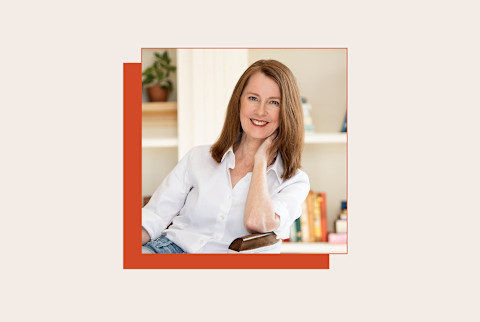3 Actionable Tips To Reduce Anxiety & Boost Energy (For Free!)

What if we told you that you could reduce anxiety, boost energy, and bolster your mood without spending a single penny? Sounds like a tall order, but according to leading happiness scholar and New York Times bestselling author Gretchen Rubin, it's not so far-fetched—all it takes is tapping into your five senses.
Understanding the myriad ways you see, hear, feel, smell, and taste can help ground you in your surroundings and enhance the way you move in the world. In her book, Life in the Five Senses, Rubin even argues that the five senses provide a path to a happier, more mindful life.
Here, find a few of her actionable (and free!) tips to connect to your awareness, thus strengthening your mental health, creativity, and energy:
Take the opposite route
"If you do something frequently, do it the opposite way," advises Rubin. For example, if you take a familiar route on your daily walk, try embarking on your journey the opposite way. "It's bonkers how hard that is," Rubin notes. "It's really hard to do something counterclockwise if you usually do it clockwise."
But once you get over that initial discomfort, the benefits abound: "It goes back to the idea of mindfulness," Rubin adds. "How might I wake myself up? What would make [life] fresh and interesting?"
If you do switch up your daily routine (a different route to work, perhaps), chances are you might notice different sights, sounds, and stimulations, which can enhance your creativity and boost your mood. Essentially, participating in Opposite Day actually has some important mental health benefits.
Notice what you smell & taste
Your sense of smell is very much tied to your mental health and mood. In fact, research has shown that loss of smell is a significant risk factor for anxiety and depression1.
What's more, your sense of smell and taste are intimately connected. So to enhance the former, Rubin suggests plugging your nose while you taste certain foods. Like a jelly bean, for example (or a healthier candy option of your choosing): "Plug your nose, pop the jelly bean into your mouth, and it will taste just plain sweet," she explains. "Then if you unplug your nose, you'll [taste] a very complex cherry, bubblegum, root beer, or whatever flavor it is."
Your sense of smell elevates the food you eat, a concept that has become top of mind for many who have faced anosmia (loss of smell) from COVID. "People are much more aware now of the extremely important role that smell plays in our lives," says Rubin. "It contributes to our sense of vitality and engagement with other people."
That said, try Rubin's exercise and note the complex differences in the flavors of your food. The little activity can help you become more attuned to your sense of smell and boost your mood health as a result.
Share sensory moments
We've all been there: You walk into a social gathering without anyone to mingle with. It can be anxiety-inducing to show up to events alone, which is why Rubin provides us with her go-to party trick.
"If you don't know anybody, a great way to connect is to comment on a shared sensory experience," she explains. "So you might say, 'I love this song. Do you know the name?' or, 'Those hors d'oeuvres look really good. Have you tasted anything? What should I try?' or, 'What a beautiful flower arrangement, I can smell the lilacs from here!'"
Comment on whatever you see, smell, taste, or hear around you, and chances are you'll connect with others. "They already have something that they're sharing with you, and it will tie you to the moment together." Social awkwardness, begone.
The takeaway
Tending to your mental health however you can is important, and it sometimes may require professional help and tools. That said, "There is a way to be more mindful just by tapping into your environment," Rubin adds. The world around you is brimming with beauty, life, and adventure—it's up to you to make sense of it.
